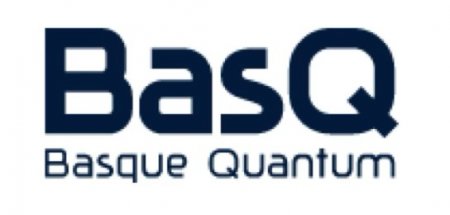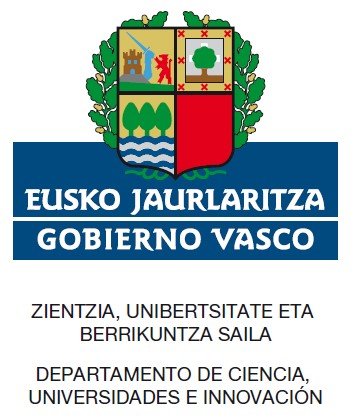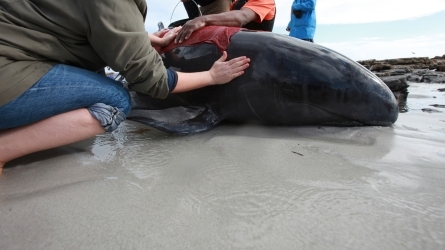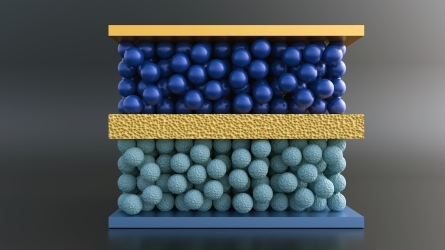
Quantum Algorithms in Pre-Fault Tolerant Hardware (BasQIBM25)
Description
The field of quantum computing is on the brink of transformative advancements, driven by tangible progress in hardware development. As we enter the era of pre-fault-tolerant quantum devices, the potential for addressing complex quantum systems, once confined to theoretical realms, is becoming increasingly concrete. This conference aims to foster a collaborative environment where scientists from diverse backgrounds, including large-scale quantum experiments, classical approximation methods, and quantum algorithms, can come together to explore the implications of this hardware progress. By facilitating interdisciplinary discussions and knowledge sharing, we seek to identify critical challenges and opportunities in leveraging pre-fault tolerant quantum hardware to tackle complex problems in quantum physics, chemistry, materials science, and beyond.
ORGANIZING COMMITTEE:
- Geza Giedke (DIPC & Ikerbasque)
- Enrique Rico Ortega (CERN & UPV/EHU & Ikerbasque)
- Kristan Temme (IBM)
Objectives
This conference aims to foster a collaborative environment where scientists from diverse backgrounds, including large-scale quantum experiments, classical approximation methods, and quantum algorithms, can come together to explore the implications of this hardware progress.
By facilitating interdisciplinary discussions and knowledge sharing, we seek to identify critical challenges and opportunities in leveraging pre-fault tolerant quantum hardware to tackle complex problems in quantum physics, chemistry, materials science, and beyond.
Activity directed to
- University student
- Teachers
- Professionals
Directors
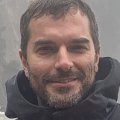
Enrique Rico Ortega
UPV/EHU - Ikerbasque
I have been working in the field of theoretical quantum physics in a broad scope of topics ranging from quantum link models and the preparation of exotic topological states in open systems to implementations of lattice gauge theories using ultra-cold atoms. I have made key contributions to a large number of projects and the ideas from my research with my collaborators have opened new directions to several timely topics in quantum physics in condensed matter, atomic-molecular-quantum optics physics, and beyond. To give an example, in my recent work on the quantum simulation of lattice gauge theories, with my collaborators, we have put forward a very exciting new approach to fundamental problems of high-energy physics. In 2015, I move to Bilbao with the highly competitive and prestigious Ikerbasque research fellow position. Nowadays, I have a permanent position at the UPV/EHU with an Ikerbasque research associate position.
Speakers

Dorit Aharonov
Hebrew University and Qedma

Mari Carmen Bañuls Polo
Max Planck Institute of Quantum Optics

Daniel Barredo González
CSIC

Rainer Blatt
Universitat Innsbruck & IQOQI & Alpine Quantum Technologies GmbH
Rainer Blatt’s research focuses on trapped ions as a means to address fundamental questions in quantum optics, spectroscopy, and quantum information science. In the laboratory, individual ions are confined in electromagnetic traps under ultrahigh vacuum, and their electronic states are manipulated and probed using laser beams. Experiments in his group, including the demonstration of quantum gates and highly entangled ion strings, have established that ions are outstanding candidates for quantum bits in a quantum computer. Current research themes include the investigation of light-matter quantum interfaces, the scalability of ion traps for quantum information processing, and the use of trapped ions to simulate quantum processes.

Robin Blume-Kohout Blume-Kohout
Sandia National Laboratories

Sophia Economou
Virginia Tech

Francesca Ferlaino
University of Innsbruck and IQOQI

Jay Gambetta
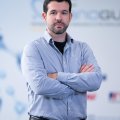
Fernando González Zalba
M. Fernando Gonzalez Zalba is an Ikerbasque Professor at CIC nanoGUNE where he leads the Quantum Hardware Group since 2024. He is also Head of Quantum Hardware Development at Quantum Motion, a start-up dedicated to the development of quantum computing hardware based on silicon technology. He holds a UKRI Future Leader Fellowship for the development of scaled up quantum computing architectures based on silicon technology. Furthermore, he is Associate Lecturer at the University of Cambridge - where he teaches Low-Dimensional Physics – he is Honorary Research Associate at University College London – for his dedication to graduate training – and Quondam Fellow at Hughes Hall, a University of Cambridge College. He obtained a PhD from the University of Cambridge with a thesis on Single-atom Electronics in 2013 and was Head of Quantum Computing at the Hitachi Cambridge Laboratory, a R&D centre of Hitachi Europe. In 2016, he received the R&D Technology Award from Hitachi's Centre for Social Innovation for the development of silicon-based quantum computing technology. He was awarded the Young Scientist Award by the Spanish Royal Society of Physics in 2017, and in 2019 became a Royal Society Industry Fellow.

William J. Huggins
Google Quantum AI

Balint Koczor
University of Oxford

Mario Motta
IBM Quantum, T. J. Watson Research Center

Frank Pollmann
TUM

Rahul Trivedi
Max Planck Institute of Quantum Optics

Zoltan Zimboras
University of Helsinki
Registration fees
| Registration fees | Until 13-06-2025 |
|---|---|
| 0 EUR | |
| 400,00 EUR |
Venue
Miramar Palace
Pº de Miraconcha nº 48. Donostia / San Sebastián
Gipuzkoa
Miramar Palace
Pº de Miraconcha nº 48. Donostia / San Sebastián
Gipuzkoa
